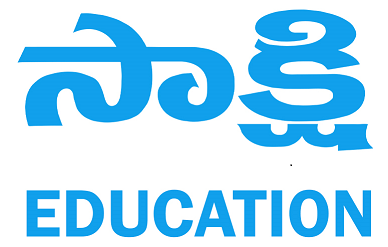September 2020 India and the World
Sakshi Education
- UN named Indian teenager Udit Singhal to 2020 Class of Young Leaders for SDGs
 The United Nations has named Udit Singhal, an 18-year-old youngster from India has been named to the 2020 Class of 17 Young Leaders for the SDGs (Sustainable Development Goals).
The United Nations has named Udit Singhal, an 18-year-old youngster from India has been named to the 2020 Class of 17 Young Leaders for the SDGs (Sustainable Development Goals).
It is the highest-profile recognition opportunity for youngsters in the UN.
Udit Singhal:
Udit Singhal is the founder of Glass2Sand, a zero-waste ecosystem that addresses the growing menace of glass waste in Delhi.
Under the initiative, empty glass bottles are prevented from being dumped into landfills and are crushed into commercially valuable sand.
His initiative has stopped over 8,000 bottles from being dumped in landfills and produced 4,815 kg of high-grade silica sand so far.
Young Leaders for the SDGs initiative:
The Office of the UN Secretary-General's Envoy on Youth organizes the Young Leaders for the SDGs initiative on a biennial basis.
This initiative is the UN's highest-profile recognition opportunity for young people who are leading efforts to combat the world issues and whose leadership is catalyzing the achievement of the SDGs.
- 60 Years of Indus Water Treaty
The Indus Water Treaty (IWT) between India and Pakistan marks its 60th anniversary on 19th September 2020.
Key Points
The Indus system comprises the main Indus, Jhelum, Chenab, Ravi, Beas and Sutlej. The basin is mainly shared by India and Pakistan with a small share for China and Afghanistan.
With the partition of India in 1947, waters of Indus rivers system were also divided.
The sharing formula, devised after prolonged negotiations, sliced the Indus system into two halves. The three ‘western rivers’ (Indus, Jhelum and Chenab) went to Pakistan and the three ‘eastern rivers’ (Sutlej, Ravi and Beas) were portioned to India.
India is allowed to use 20% water of the western rivers for irrigation, power generation and transport purposes.
IWT granted 3.6 million acre-feet (MAF) of “permissible storage capacity” to India on the western rivers but due to poor water development projects, 2-3 MAF of water easily flows into Pakistan.
It seemed equitable but India conceded 80.52% of the aggregate water flows in the Indus system to Pakistan and also gave Rs. 83 crore in pounds sterling to Pakistan to help build replacement canals from the western rivers.
India conceded its upper riparian position on the western rivers for the complete rights on the eastern rivers.
It was important to get the waters of the ‘eastern rivers’ for the Indira Gandhi Canal in Rajasthan (starts from the Harike Barrage, a few kilometers below the confluence of the Satluj and Beas rivers) and the Bhakra Dam (on the Sutlej River in Bilaspur, Himachal Pradesh) without which both Punjab and Rajasthan would be left dry, severely hampering India’s food production.
The World Bank, as the third party, played a pivotal role in crafting the IWT.
- G4 Foreign Ministers Meeting
Foreign Ministers from the Group of 4 (G4), consisting of India, Brazil, Japan and Germany, participated in a virtual meeting.
G4 is a group of countries that are seeking permanent membership of the United Nations Security Council (UNSC).
Key Points
G4 will seek concrete and time-bound outcomes during the 75th session of the UN General Assembly.
The UN will celebrate its 75th anniversary on 24th October 2020.
The Ministers reaffirmed their common resolve to finally take decisive steps towards the early and comprehensive reform of the Security Council that was envisaged by Heads of State and Government in the 2005 World Summit.
The 2005 World Summit was held at United Nations Headquarters in New York.
All governments expressed strong and unambiguous commitment to achieve the Millennium Development Goals by 2015.
It set up two new bodies, a Peacebuilding Commission to help countries in transition from war to peace, and a strengthened Human Rights Council.
- India, Sri Lanka to hold virtual bilateral summit on 26 September
Prime Minister Narendra Modi and PM's Sri Lankan counterpart Mahinda Rajapaksa is to hold a virtual bilateral summit on 26 September 2020.
This summit will be the first official engagement after parliamentary elections in Sri Lanka.
Highlights:
The virtual bilateral summit between India and Sri Lanka will provide an opportunity to the two leaders to comprehensively review the broad framework of the bilateral relationship.
It is expected that the Leaders will discuss the implementation of developmental projects by India, trade, cooperation on counter-terrorism and defence matters, and the devolution of powers to Sri Lanka's Tamil minority.
Background:
In July 2020, India announced a $400 million currency swap facility for Sri Lanka under the framework of the SAARC (South Asian Association for Regional Cooperation).
India is planning to provide a bilateral swap facility for $1.1 billion, as per Sri Lanka's request.
- “JIMEX 20” to be held from 26 to 28 September, 2020
The 4th edition of Maritime bilateral exercise between India and Japan "JIMEX 20" has been scheduled to be held from 26 to 28 September 2020. The exercise is conducted biennially between the Indian Navy and the Japanese Maritime Self-Defense Force (JMSDF).
JIMEX 20:
JIMEX 20 will be conducted in North Arabian Sea.
The exercise will showcase joint operational skills and high degree of inter-operability through conduct of a multitude of advanced exercises, across the spectrum of maritime operations.
The exercise will include Multi-faceted tactical exercises like weapon firings, cross deck helicopter operations and complex surface.
It also incluse anti-submarine and air warfare drills that will consolidate coordination developed by the two navies. JIMEX 20 will be conducted in a ‘non-contact at-sea-only format’, in view of COVID-19 restrictions.
The exercise aims to enhance the cooperation and mutual confidence between the two navies. It also aims to fortify the long standing bond of friendship between the two countries.
From Indian Side, the indigenously built stealth destroyer Chennai, Teg Class stealth frigate Tarkash and Fleet Tanker Deepak, under the command of Rear Admiral Krishna Swaminathan, Flag Officer Commanding Western Fleet, will participate in the exercise.
From Japanese Side, JMSDF Ships Kaga, an Izumo Class Helicopter Destroyer and Ikazuchi, a Guided Missile Destroyer, led by Rear Admiral Konno Yasushige, Commander Escort Flotilla – 2 (CCF - 2) will participate in the exercise.
Background:
JIMEX series of exercises commenced in January 2012. The main objective of the exercise is to focus on maritime security cooperation. The last edition of JIMEX was conducted in October 2018 off Visakhapatnam, India.
- Five Point Plan to De-escalate LAC Stand-off
 India and China have agreed on five points plan to disengage troops and reduce tensions along the Line of Actual Control (LAC), where Indian and Chinese troops have been engaged in a four-and-a-half-month-long stand-off.
India and China have agreed on five points plan to disengage troops and reduce tensions along the Line of Actual Control (LAC), where Indian and Chinese troops have been engaged in a four-and-a-half-month-long stand-off.
The move came after the talks between India’s External Affairs Minister and his Chinese counterpart, on the margins of a Shanghai Cooperation Organisation (SCO) meeting in Russia.
Key Points
Both sides should take guidance from Wuhan and Mahabalipuram summits on developing India-China relations, that includes not allowing differences to become disputes.
Border troops should continue their dialogue, quickly disengage, maintain proper distance and ease tensions.
The two sides shall abide by all the existing agreements and protocols on China-India boundary affairs and avoid any action that could escalate matters.
Continuing communications through the Special Representatives mechanism, and meetings of the Working Mechanism for Consultation and Coordination on border affairs.
The Special Representatives (SRs) on the Boundary Question was established in 2003. It provided important guidance for ensuring peace and tranquility in border areas in a challenging situation.
WMCC was established in 2012.
Working to conclude new confidence-building measures.
- India’s Position Shift on Taliban
India has signaled a shift in its position on engaging with the Taliban by participating in the commencement ceremony of Intra-Afghan talks between the Afghanistan government and the Taliban in Doha, Qatar.
Key Points
The Indian presence at the Intra-Afghan peace talks indicates that it has changed its position given the ground reality in Afghanistan and the changing power structure in Afghanistan.
USA's withdrawal has given Pakistan a major role to play in Afghanistan directly or indirectly through its proxies.
However, some experts were of the opinion that India chose to attend the ceremony because the Afghan government was also at the table.
India still does not recognise the Taliban.
Background:
The USA signed a deal with the Taliban that paved the way towards a full withdrawal of USA troops from Afghanistan and also represent a step towards ending the 18-year-war in Afghanistan.
The peace deal was expected to kick-off two processes- a phased withdrawal of US troops and an ‘intra-Afghan’ dialogue.
The deal is a fundamental step to deliver a comprehensive and permanent ceasefire and the future political roadmap for the Afghanistan peace process.
- Indian, US Defense Delegations conduct Virtual Discussion on Defense Cooperation
The 10th Defense Technology and Trade Initiative (DTTI) Group Meeting was held on 15 September 2020. The virtual meeting was co-chaired by Mr. Raj Kumar, Secretary, Defence Production, Ministry of Defence (MoD) from Indian Side, and Ms. Ellen M. Lord, Under Secretary of Defense for Acquisition and Sustainment, U.S. Department of Defense from the US Side.
Highlights:
DTTI Group Meetings are held twice a year, alternating between India and the US.
The meeting was held via VTC on account of the COVID-19 pandemic.
The DTTI Group aims to bring sustained leadership focus to the bilateral defense trade relationship.
The meeting also aimed to create opportunities for co-production and co-development of defense equipment.
Under DTTI, four Joint Working Groups (JWG) focused on land, naval, air, and aircraft carrier technologies have been established. The main object of the JWG is to promote mutually agreed projects within their domains.
The ongoing activities and collaborative opportunities including a number of near-term projects targeted for completion on priority was discussed.
The co-chairs signed a Statement of Intent (SOI) to strengthen the dialogue on defense technology cooperation. It will be pursued by detailed planning and making measurable progress on several specific DTTI projects.
The SOP will empower the framework for DTTI and allow both sides to reach and document a mutual understanding of how to define and achieve success.
- India becomes an observer of Djibouti Code of Conduct
India has joined the Djibouti Code of Conduct or Jeddah Amendment as an Observer after the high-level meeting of the Djibouti Code of Conduct/ Jeddah Amendment (DCOC/JA). The meeting was held virtually on 26 August 2020.
Djibouti Code of Conduct/ Jeddah Amendment (DCOC/JA):
Djibouti Code of Conduct/ Jeddah Amendment (DCOC/JA) is a grouping on maritime matters. The group comprises 18 member states that adjoin the Gulf of Aden, the Red Sea, the East coast of Africa, and Island countries in the Indian Ocean Region (IOR).
India now joins Norway, Japan, the UK, and the US as Observers to the DCOC/JA.
As an Observer, India will work together with DCOC/JA member states to coordinate and contribute to enhanced maritime security in the IOR. It is expected that the DCOC will provide a strategic heft in the Indian Ocean region.
Djibouti Code of Conduct:
The DCOC was established in January 2009. The group is aimed at the repression of piracy and armed robbery against ships in the Western IOR, the Gulf of Aden, and the Red Sea.
The Djibouti Code of Conduct aims to provide a framework for capacity building in the Gulf of Aden and the Western Indian Ocean to combat the threat of piracy.
- Initiative to reduce Land Degradation and Coral Reef program launched at
The Environment Ministerial Meeting (EMM) of the G20 countries was held through video conferencing under the Presidency of the Kingdom of Saudi Arabia on 16 September.
Abdulrahman Al-Fadley, Chaired the Environment Ministers Meeting. Union Environment, Climate Change, and Forest Minister Prakash Javadekar represented India. He discussed the significant steps taken by the Government of India (GoI) to protect the environment and forest and wildlife and combating pollution and climate change.
Highlights:
The Global Initiative on Reducing Land Degradation and Coral Reef program was launched at the G20 Environment Ministers Meeting.
The Program aims to strengthen the implementation of existing frameworks to prevent, halt, and reverse land degradation within G20 member states and globally.
The program aims to account for possible implications on the achievement of other Sustainable Development Goals (SDGs) and adhere to the principle without doing any harm.
Global Coral Reef R&D Accelerator Platform is an innovative action-oriented initiative.
It aimed to create a global research and development (R&D) program to advance research, restoration, adaptation, innovation, and capacity building in all facets of coral reef conservation, and strengthen ongoing efforts and further degradation.
Union Minister Prakash Javadekar highlighted the efforts made by the National Coastal Mission Programme of GoI. Under the initiative, many steps to protect and sustain coral reefs in the country have been taken. He also shared the efforts made by GoI to achieve land degradation neutrality and to attain global goals of climate change mitigation and adaptation.
- Basic Exchange and Cooperation Agreement: USA
The USA is looking forward to India signing the Basic Exchange and Cooperation Agreement for Geo-Spatial cooperation (BECA), at the next India-USA 2+2 ministerial dialogue likely to be held in October, 2020.
Key Points
They are a dialogue between two appointed ministers from each country. This meeting aims to discuss issues of strategic and security interests between the two countries.
Defense and foreign ministers or secretaries meet with their counterparts from another country.
India holds such talks with Japan and Australia, at the foreign secretary and defense secretary level.
India holds ministerial-level talks only with the USA. Apart from India, the United States holds such ministerial dialogues with Australia and Japan also.
The talks were announced in June 2017. The 2+2 dialogue has replaced the Strategic and Commercial Dialogue between the foreign and commerce ministers of the two countries that were held previously.
- 17th ASEAN-India Economic Ministers Consultations held
 Recently, the 17th ASEAN-India Economic Ministers Consultations was held virtually, co-chaired by India and Vietnam.
Recently, the 17th ASEAN-India Economic Ministers Consultations was held virtually, co-chaired by India and Vietnam.
Highlights
The meeting was attended by the commerce ministers of the 10 ASEAN countries. This included Malaysia, Thailand, Laos, Vietnam, Indonesia, Singapore, Brunei, Myanmar, Cambodia and Philippines. The leaders at the meet reaffirmed their commitment in the following
To ensure financial stability
Resilient supply chain
Unimpeded flow of essential goods and medicines
The ASEAN-India Business Council report was submitted during the meeting. The report had recommended reviewing the AITIGA. AITIGA is ASEAN India Trade in Goods Agreement.
Background:
In 2003, India and ASEAN signed a Framework Agreement on Comprehensive Economic Cooperation to establish an ASEAN-India Regional Trade and Investment Area, which would provide a basis for subsequent FTAs covering goods, services and investment.
India dropped out of the Regional Comprehensive Economic Partnership (RCEP) in November 2019 at ASEAN+3 summit, because of increasing trade deficits with partner nations and increasing China-India tensions.
Recently, India participated in the 6th roundtable meeting of the ASEAN-India Network of Think Tanks (AINTT).
India highlighted the difficulties that were hindering strong response to deal with the Covid-19 pandemic.
- US-India Strategic Partnership Forum
Prime Minister of India delivered the keynote address at the 3rd Annual Leadership Summit of US-India Strategic Partnership Forum (USISPF).
Key Points
The USISPF is a non-profit organization established in 2017.
Objective is strengthening the USA-India bilateral and strategic partnership.
Aim is strengthening economic and commercial ties between the two countries through policy advocacy that will lead to driving economic growth, entrepreneurship, employment-creation, and innovation to create a more inclusive society.
Enabling business and governments to collaborate and create meaningful opportunities that can positively change the lives of citizens.
Theme for 2020 is US-India Navigating New Challenges.
In 2019, overall USA-India bilateral trade in goods and services reached USD 149 billion.
USA energy exports are an important area of growth in the trade relationship.
Published date : 10 Oct 2020 01:28PM


















